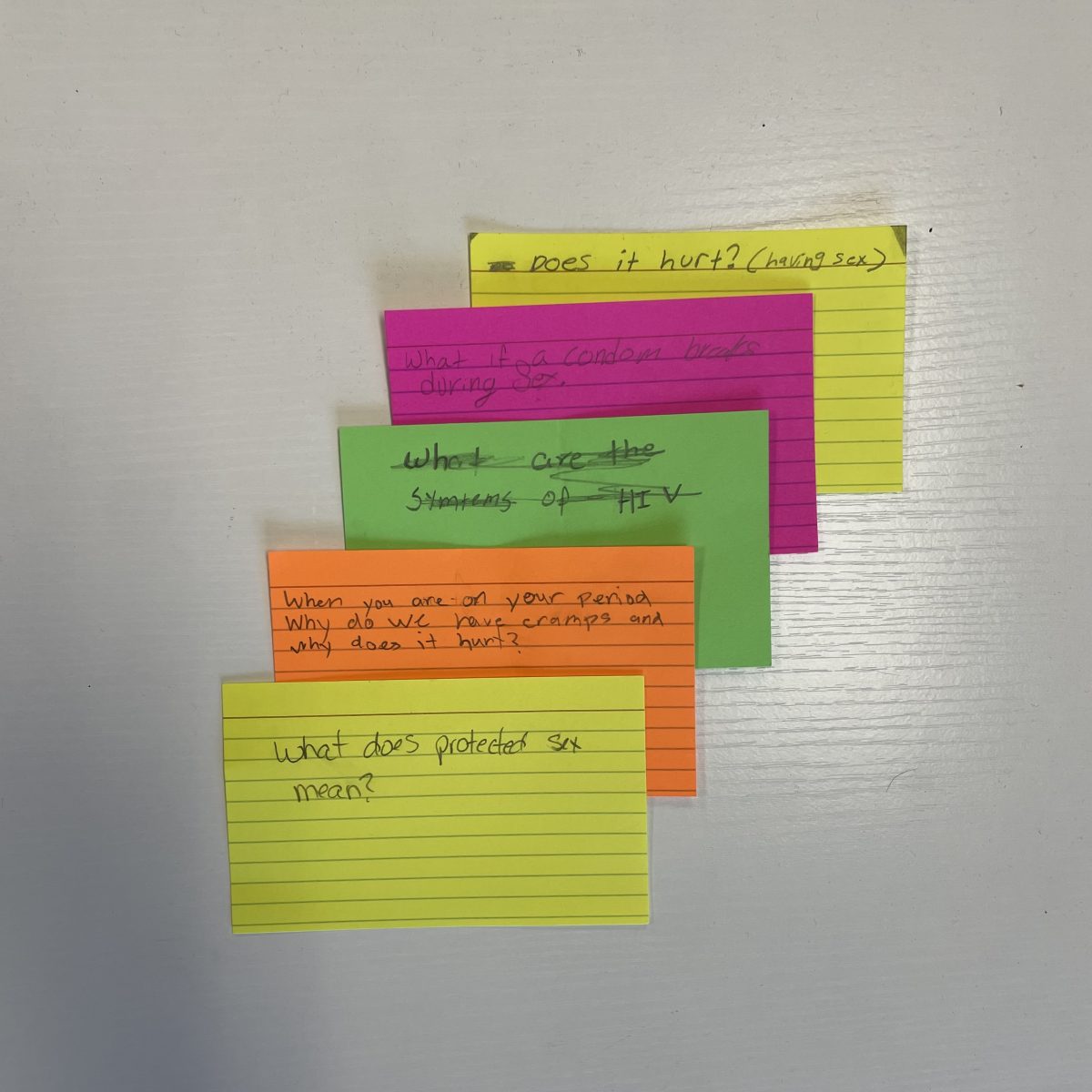Posts by Kathy Harms
Students’ Questions Reveal the Need for Healthy Sexual Education
Author: Kathy Harms, Executive Director and Lead Health Educator
Is it rape if it feels good? It was the first time I had received this question in 16 years of teaching sexual health classes. When I walked into the 7th grade classroom to teach the fifth day of the series, I discovered the anonymous question card on my stack of materials. I was taken aback when I read it, which is unusual considering the thousands of anonymous questions I have received over the years. I realized I was not as desensitized as I thought. Mostly, I was saddened knowing that the youth who wrote it, and stealthily put it with my belongings, was possibly asking for themself.
Is someone still a virgin if they were forced to have sex the first time? This is a question I have received many times over the years. It is one that affects me emotionally, giving rise to feelings of helplessness. The shame surrounding this conversation has been detrimental since the dawn of time, and primarily to females. Virginity is a social construct and should never be a litmus test for a person’s character and value. Sadly, some people believe differently.
During a presentation to a community group, I shared that I am frequently asked that question by middle school students. John Doe approached me following the talk and said without introduction, “The answer is NO.” I looked at him, clearly confused, as he continued, “SHE is not a virgin, even if she is forced to have sex.” This John Doe’s view is one that too many young people believe as they hear it repeatedly from adults.
Other frequent, but less emotion-evoking, questions include:
- Can someone get pregnant through oral sex? This question demonstrates a lack of reproductive anatomy education, as many young people believe a fetus develops in the stomach rather than the uterus.
- Will urinating right after sex prevent pregnancy? Young females as well as adult women may believe this, since many do not realize they have a urethra. Their incorrect logic is that they can ‘pee’ the sperm out of the vagina. This is not a negative reflection of those women as much as it is a result of poor reproductive anatomy education in our society.
- Will kissing a boy create pregnancy? This question may come from a fear tactic implemented by well-intentioned parents, who likely heard the same from their parents. The cycle of myths and misinformation is often generational. If trust and good communication are the goals, parents should start with honesty and respectful dialogue.
Young people have questions – lots of them.
Many of my students have told me they will not talk to their parents or other adults about sex because they feel they will be judged. As one student explained it and many have followed suit, “If I ask them a question, they are going to think I am ‘doing it’.” Those fears are sometimes unfounded, as many parents grapple with these issues, but sincerely want to talk to their children about them.
On the other hand, plenty of parents and guardians don’t feel equipped to have the conversation. During a school open house, one mother asked, “In your classes, you’re going to talk about periods, right?” I told her that, yes, we cover menstruation. She sighed with relief and said, “Good, because I know she is going to start soon and I don’t want to talk about it.”
Their questions deserve complete answers.
Young people have questions long before I get to the classroom. Many students are preoccupied by the topic of sex, and will continue to be until those questions are answered. Sadly, students across Oklahoma may not get their questions answered because there are very few sexual health programs in our state.
Unfortunately, of those programs offered, some are taught with an ‘abstinence only’ frame. To be clear, abstinence is a healthy topic that should be discussed with young teens. It’s the word ONLY that is problematic. Abstinence Only programs are just that. The focus only on abstinence as THE prevention method for unplanned pregnancies and sexually transmitted infections.
Math taught with subtraction, multiplication and division, but without addition, would provide confusing and impossible results. The same is true for sexual health. Withholding information and using fear and shame as a way to delay sexual initiation has been proven to be ineffective and can be harmful to young people.
Accuracy and honesty are essential.
Teaching young people about their bodies, using correct terminology, answering questions without judgment, and being honest and respectful are effective teaching methods that students have told me, for years, they appreciate. As adults, we want respect, we want honesty, and we understand the more we know, the better we can prepare. Young people want and deserve the same.
The ‘final answer’ is up to us.
In order to provide the BEST answers to their questions, we must ensure that all young people receive high-quality sexual health education that will help them make well-informed decisions.

